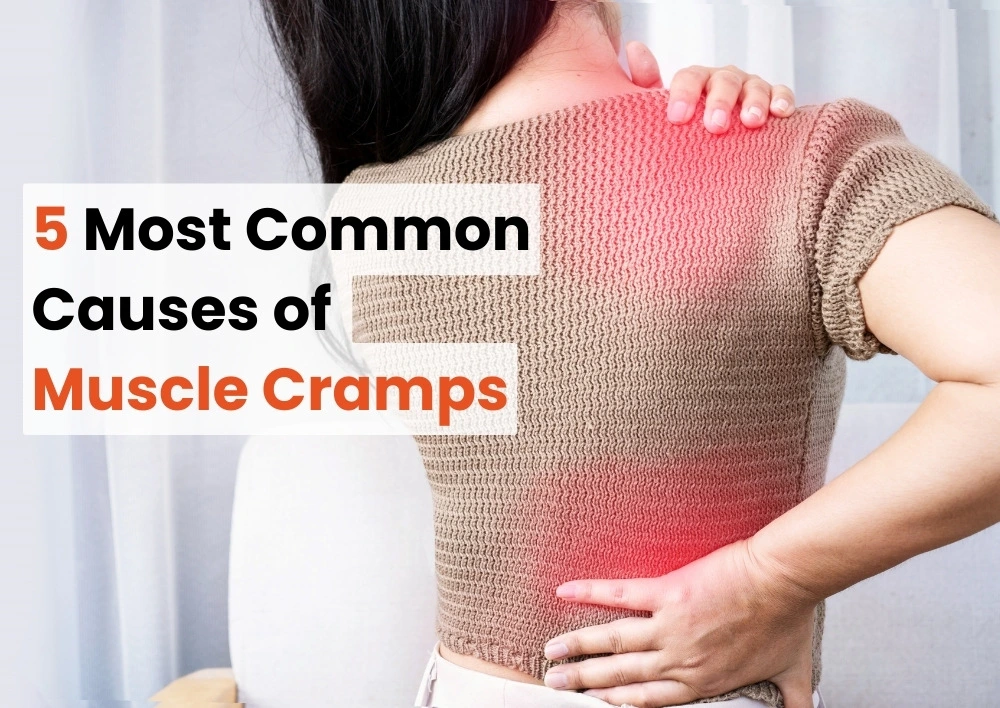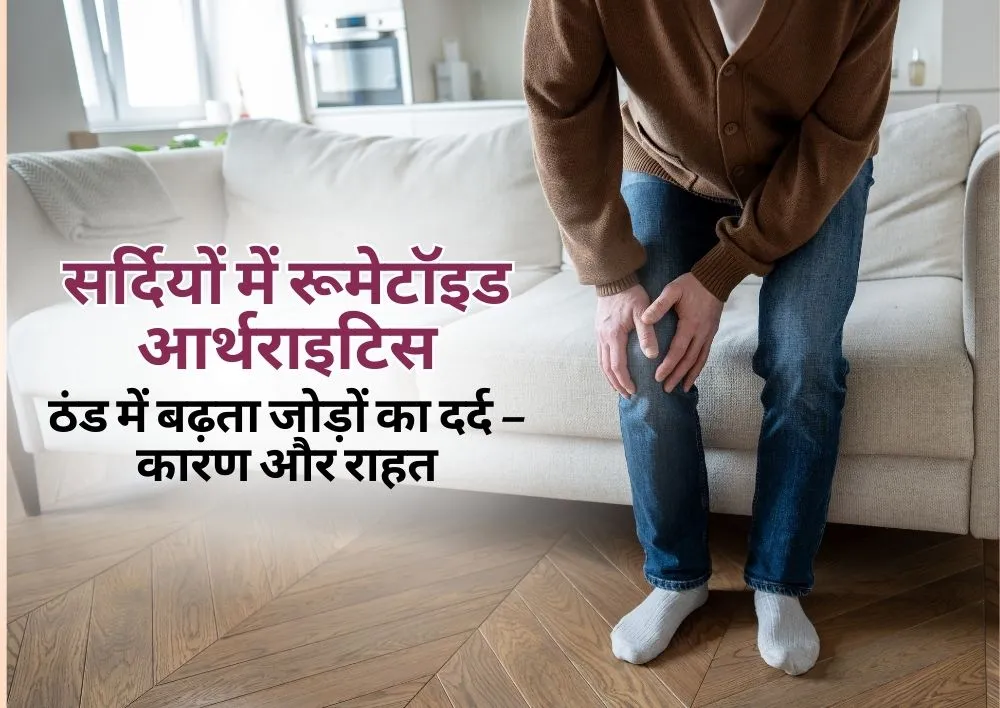5 Most Common Causes of Muscle Cramps
Muscle cramps are a sudden, sharp reminder of how sensitive our bodies can be. One moment, you are perfectly fine, and the next, your calf or foot is locked in a painful spasm that feels impossible to shake off. These cramps are not only painful but also often strike at the most inconvenient times, such as while exercising, sleeping, or even just sitting still. Naturally, this leads to the question: what exactly causes these muscle cramps to occur so unexpectedly?
In this post, the leading orthopaedic doctor in Gurgaon at Miracles Apollo Cradle/Spectra provides insights into the 5 most common causes of muscle cramps, explaining why they happen and, more importantly, how you can prevent them from disrupting your life.
What Are Muscle Cramps?
Before exploring the muscle cramps causes, it’s important to understand what a muscle cramp is. A muscle cramp is an involuntary contraction or spasm of one or more muscles. These cramps can last anywhere from a few seconds to several minutes, and the pain they cause can range from mild to severe.
While cramps can occur in any muscle, they are most commonly experienced in the legs, feet, and hands. Though they are usually harmless, regular muscle cramps can interfere with daily activities, sleep, and exercise. That’s why it is important to find the reasons for muscle cramps and take preventative measures.
5 Most Common Reasons for Muscle Cramps
1. Dehydration: It is considered the root cause of many muscle cramps. Our bodies are made up of about 60% water, and for proper functioning, our muscles rely on this water to function properly. When you don’t take enough fluids, your body starts losing balance in electrolytes like sodium, potassium, and magnesium which are important for muscle coordination and relaxation.
How Dehydration Causes Cramps:
-
Fluid imbalance: Dehydration affects the amount of fluid in your muscle tissues, and affects their ability to contract and relax smoothly.
-
Electrolyte loss: Sodium and potassium help regulate muscle contractions. A shortage of these important electrolytes can cause overactive muscles that lead to cramps.
-
Increased risk in heat: In hot environments, your body loses water and electrolytes through sweat, making cramps more likely.
How to Prevent Dehydration Cramps:
-
Drink plenty of fluids throughout the day: Water is best, but if you are sweating a lot, electrolytes can help.
-
Monitor your urine color: Clear to pale yellow urine is a sign of proper hydration. On the other hand, darker urine indicates dehydration.
-
Eat water-rich foods: Consume foods like cucumbers, watermelon, and oranges to help keep you hydrated.
2. Overused Muscles: Another common cause of muscle cramps is overworking your muscles. Whether you are exercising intensely or repeating a particular motion for long periods, the muscles become overworked and fatigued, and this fatigue can lead to cramps. When muscles are used beyond their capacity, they may struggle to relax, causing them to hold.
How Muscle Overuse Causes Cramps:
-
Muscle fatigue: Intense exercise drains the energy stored in your muscles. Without adequate energy, muscles can’t relax properly, leading to cramps.
-
Lack of oxygen: Overused muscles may not receive enough oxygen, causing them to become tense and cramp.
-
Repetitive movements: Repeating the same motion such as typing or running over long periods can lead to muscle fatigue and cramping.
How to Prevent Overuse Cramps:
-
Rest between activities: Give your muscles time to recover between exercises or repetitive tasks.
-
Warm up: It is important to warm up properly before starting physical activities. Stretching and light movement can prepare your muscles for the work ahead.
-
Mix up your routine: Avoid overusing the same muscles by changing your exercises or movements.
3. Nutrient Deficiencies: Your muscles depend on a variety of nutrients to function properly. These minerals help regulate muscle contractions. When you are deficient in calcium and potassium, your muscles are more prone to cramping.
How Nutrient Deficiencies Cause Cramps:
-
Calcium deficiency: Calcium helps in transmitting nerve signals that help muscles contract. A lack of calcium affects the communication, leading to cramping.
-
Potassium deficiency: Potassium helps muscles move fluids in and out of cells, ensuring proper muscle function. A deficiency of potassium can result in muscle weakness and cramps.
-
Magnesium deficiency: Magnesium helps muscles relax after contractions. Without magnesium, your muscles may remain tight and spasm.
-
Vitamin E Deficiency
How to Prevent Deficiency-Related Cramps:
-
Eat a balanced diet: Eat a diet that is rich in fruits, vegetables, whole grains, and lean proteins.
-
Consume mineral-rich foods: Include magnesium and potassium-rich foods in your diet like leafy greens, nuts, and seeds; calcium in dairy products, bananas, and avocados.
-
Use supplements: if you are not able to meet your nutrient needs through diet alone, consume supplements. But don't forget to consult an ortho doctor before including supplements in your routine.
4. Poor Blood Circulation: Poor circulation of blood is another major contributor to muscle cramps. When blood flow to a particular area is restricted, your muscles don’t get enough oxygen and nutrients to function properly. Without sufficient blood flow, muscles may cramp up as a result People with vascular conditions, such as peripheral artery disease (PAD), are especially prone to this type of cramping.
How Poor Circulation Causes Cramps:
-
Restricted blood flow: Narrowed arteries can reduce the amount of oxygen-rich blood reaching your muscles, and causing them to cramp.
-
Lack of nutrients: Poor circulation indicates fewer nutrients reach your muscles.
-
Lactic acid buildup: Poor circulation can also cause lactic acid to build up in muscles, contributing to cramping.
How to Prevent Poor Circulation-Related Cramps:
-
Stay active: Regular exercise, even light movement, can help improve blood circulation and reduce the risk of muscle cramps.
-
Avoid prolonged sitting or standing: If you are in a sedentary job, try to move around every hour.
-
Compression socks: These can help improve circulation in your legs, especially if you are at risk for poor blood flow.
5. Improper Sleeping Positions: Nighttime muscle cramps are surprisingly common in the legs, and they are often triggered by improper sleeping positions. When you sleep in a way that puts stress on your muscles or keeps them in a contracted state, they can cramp up suddenly.
How Sleeping Positions Cause Cramps:
-
Awkward positioning: Sleeping with your legs twisted or bent at odd angles can strain your muscles, leading to cramping muscles.
-
Prolonged tension: Keeping your muscles contracted for too long can cause muscle spasms.
-
Poor circulation: Certain sleeping positions can restrict the flow of blood and increase the risk of leg cramps at night.
How to Prevent Night time Cramps:
-
Stretch before bed: Gently stretch your legs and feet before going to sleep to release muscle tension.
-
Adjust your sleeping position: Make sure your legs are in a relaxed, and comfortable position throughout the night.
-
Use a pillow: Place a pillow between your legs or under your knees to prevent awkward positions.
Who Is at Risk of Muscle Cramps?
-
Athletes: Those who participate in endurance sports or high-intensity workouts are more prone to muscle overuse and cramping, especially in hot conditions where heavy sweating leads to water and electrolyte loss.
-
Manual laborers: Jobs that require repetitive movements, such as lifting, typing, or other physical tasks, can overwork a specific group of muscles, increasing the likelihood of cramps.
-
Elderly individuals: As we age, our sense of thirst decreases, making dehydration more common. Additionally, nighttime cramps in elderly individuals become more frequent due to poor blood circulation and muscle fatigue.
-
Pregnant women: Pregnancy increases the body’s demand for water and essential nutrients, making dehydration a potential risk for expectant mothers, which can lead to muscle cramps.
-
People with vascular conditions: Conditions such as peripheral artery disease (PAD) can limit the flow of blood to the legs, increasing the chance of cramping, especially during physical activity.
-
Individuals having a Sedentary Lifestyle: Staying in one position for extended durations, whether sitting or standing, can reduce blood flow to the muscles, leading to cramps.
-
People who sleep in tight positions: Those who sleep curled up or with bent knees may experience more frequent cramps due to restricted muscle movement and blood flow.
-
Older adults: Leg cramps while sleeping often become more common with age, sometimes linked to muscle fatigue or decreased circulation in the legs.
These groups are more susceptible to muscle cramps, but by staying hydrated, stretching, and maintaining good posture, many of these risks can be minimized.
Tips to Prevent Muscle Cramps
-
Stay Hydrated: Drinking water throughout the day is one of the easiest ways to prevent cramps.
-
Regular Stretching: Including stretches in your daily routine can improve muscle flexibility and reduce cramping.
-
Balanced Diet: Eating a diet rich in essential minerals like magnesium, potassium, and calcium supports healthy muscle function.
-
Warm-Up Properly: Before engaging in any physical activity, ensure your muscles are warmed up to avoid overworking them.
When to Consult a Doctor
While most muscle cramps are harmless, frequent or severe cramps could indicate an underlying health condition. If you experience cramps that last for a long period and are associated with swelling or redness, it’s important to consult an orthopedic doctor near you for muscle cramp treatment.
Conclusion:
Muscle cramps can be painful and disruptive, but they are often preventable. By understanding the triggers and making a few lifestyle changes such as staying hydrated, maintaining a balanced diet, and being mindful of how you use your muscles, you can help prevent the pain from striking again. These small adjustments to your routine could make a significant difference. If cramps persist despite these efforts, it may be time to seek medical advice from an ortho doctor near you to rule out any underlying issues. Keep your muscles healthy, and you'll be cramp-free in no time.














Was the information useful?
9 0